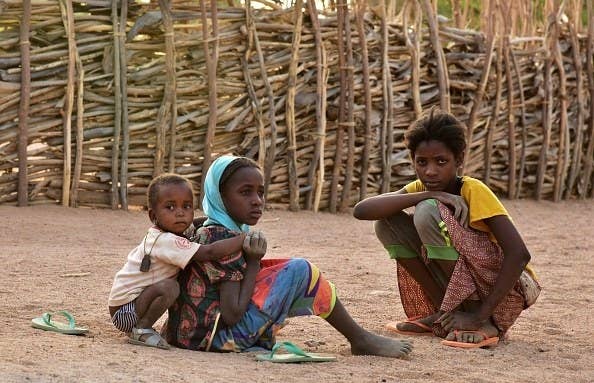
New research published by the International Committee of the Red Cross (ICRC) has established a relationship between a changing climate and conflict, leading to increased migration.
The research, launched to coincide with the World Economic Forum in Switzerland, focused on the Sahel region in Africa, a belt spanning from Senegal to Sudan that often draws global attention due to famines, religious terrorism, rebellions and human trafficking that occur in the region.
The Sahel region lies between the Sahara Desert and tropical regions of Africa just above the equator and temperatures in the area are rising 1.5 times faster than the global average.
The region is considered to be one of the world's most vulnerable to climate change because of its already highly unpredictable rainfall patterns; 50 million people in the Sahel region depend on agriculture reliant on rainfall and the area experiences recurring droughts.
The ICRC collaborated with the Brazilian think tank the Igarape Institute and data visualisation website EarthTime to analyse climate and conflict data and understand how climate patterns and violence are impacting the Sahel.

The research focused primarily on Mali and Niger, two countries that have experienced at least a two-fold increase in violence in recent years.
Mali registered 1,686 deaths in 2018 from armed conflict compared to 320 in 2016.
The researchers found that this increase in violence was driven by disputes over land and resources caused by the shortening of seasons, such as cattle herders competing against farmers for land.
Peter Maurer, president of the ICRC, said that climate change "adds a complicating layer in a region where underdevelopment, endemic poverty, widespread criminality and violence already make life so fragile."
Across the Sahel region, 24 million people required food assistance in 2018 due to food instability caused by drought and flooding.
Jihadi and other extremist groups in the region are beginning to take advantage of the conflicts and increased poverty in both countries, recruiting farmers with decreased livelihood opportunities, adding to the violence.
Robert Muggah, cofounder of the Igarape Institute, and José Luengo Cabrera, a researcher from the International Crisis Group, told the World Economic Forum Annual Meeting that the Sahel region is "a canary in a coal mine" for the effects that climate change will have on the globe.
Cabrera and Muggah also said that there are "good reasons to believe that climate-related shocks and organised violence will deepen in 2019."
While researchers have long suspected that the increasing extremity of climate patterns can contribute to violent conflict, the studies exploring this relationship up until this point have been limited.
Cabrera and Muggah said the study of the Sahel area is a wakeup call for the rest of the globe and that governments need to have systems in place to better anticipate issues with agricultural and livestock as a result of climate change.
For the early warning systems that already exist, such as the World Bank's Famine Action Mechanism and the UN's Early Warning Early Action system, the Igarape Institute and the International Crisis Group recommend that more resources need to be redirected to minimise violent conflicts.
